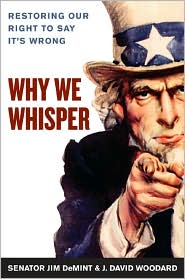
By RIAZ KHAN
PESHAWAR, Pakistan (AP) — The top U.S. diplomat in northwestern Pakistan narrowly escaped an attempt on her life Tuesday when two men with AK-47s jumped in front of her armored vehicle and sprayed it with bullets, staging a brazen attack that raised fears other foreigners could be targeted.
The attack — which the driver eluded by jamming the vehicle into reverse and speeding away — came just hours after the collapse of the governing coalition that drove Pervez Musharraf from the presidency as Pakistan grapples with escalating violence by Islamic militants.
A late nighttime bombing at a cafe on the outskirts of the Pakistani capital killed seven people and wounded 20, police reported.
Lynne Tracy, an Ohio native who heads the U.S. consulate in restive northwestern Pakistan, left her home in an upscale and heavily guarded area of Peshawar with a bodyguard provided by the local anti-terrorism squad about 8 a.m., police chief Arshad Khan said.
Moments later, the vehicle came under heavy gunfire, Khan said. He said no one was hit by bullets but a rickshaw driver was hospitalized after his three-wheeled taxi was hit by the consulate vehicle during its rapid retreat to Tracy's home.
A spokesman for the U.S. Embassy in Islamabad, Lou Fintor, declined to identify or describe any of three consulate employees in the vehicle, including where they were from or what role they played in what he would only refer to as a "security incident."
The attack follows a week of extremist violence and political strife in this nuclear-armed nation. There have been at least three suicide bombings, the deadliest outside the country's largest and most sensitive weapons factory, just 22 miles from the capital, Islamabad.
Police said a homemade bomb exploded late Tuesday at a street cafe and rest stop on the edge of the capital and seven people were killed and 20 wounded. The blast also damaged vehicles and left a large crater at the scene.
Senior police official Ahmed Latif described it as a low-intensity bomb and said it was unclear why the site was chosen. The casualties included truckers and laborers and not security forces, which tend to be target of militant attacks, Latif said.
The United States and other Western nations have been nervously watching the ruling coalition unravel since close ally Musharraf resigned last week after nearly nine years in power to avoid the humiliation of impeachment.
A decision by the coalition's second largest party to quit the government Monday could concentrate power in the hands of a more-Western leaning party that says it is committed to supporting the U.S.-led war against extremist groups.
The government immediately announced a ban on the Pakistani Taliban — blamed for the wave of suicide bombings — and it rejected a cease-fire offer from militants in the Bajur tribal region, where the army has been on the offensive for several weeks. The fighting in Bajur has reportedly killed hundreds of people and caused 200,000 to abandon their homes.
Washington has pledged $750 million toward a five-year drive to develop impoverished areas along Pakistan's frontier with Afghanistan, which it hopes will reduce extremism.
Militant activity is rampant in parts of northwest Pakistan, which is a rumored hiding place for Osama bin Laden and where U.S. officials say insurgents have found havens allowing them to mount attacks across the border in Afghanistan.
Pakistan, where anti-American sentiment runs deep, is considered a hardship posting for U.S. diplomats, with many coming for one-year stints without family. Attacks on Western targets do occur, but ones targeting individual diplomats are relatively unusual.
Talat Masood, a political and military analyst, said that could start to change.
"I think (foreign diplomats) have to be very careful" he said, especially as the army intensifies its offensive in the tribal regions along the border with Afghanistan. "They should take a low profile; their movements should be restricted during this period."
Masood cautioned against Western nations scaling back their presence, however, saying that would further embolden al-Qaida- and Taliban-linked militants and demoralize Pakistanis.
Pakistan's Foreign Ministry condemned the attack on Tracy and said the government was committed to ensuring the security of diplomats.
Peshawar, a crowded, dusty city, has not been immune from violence. Concerns about militant activity in and around the city prompted the government to conduct an offensive in the neighboring Khyber tribal region earlier this year.
There have been several attacks in recent years on Western targets.
In 2006, a suicide attacker blew himself up outside the Karachi consulate, killing a U.S. diplomat, and five people, including two Americans, died in 2002 when a militant hurled grenades into a Protestant church in Islamabad.
This March, a bombing at a restaurant frequented by Westerners in the capital killed a Turkish aid worker and wounded at least 12 others, including four FBI personnel. A suicide bombing outside the Danish Embassy three months later killed at least six people.
Political instability, meanwhile, caused stock prices in Pakistan to tumble to a two-year low Tuesday.
The main ruling Pakistan People's Party, once led by slain ex-Prime Minister Benazir Bhutto, is expected to cobble together a new coalition following the departure of its biggest partner, a party headed by Nawaz Sharif, another former prime minister and longtime Bhutto rival.
Bhutto's widower and political successor, Asif Ali Zardari, who spent years in prison on corruption allegations, has said he will run for president in the Sept. 6 election by lawmakers. The party submitted his nomination papers Tuesday and he is widely expected to win.
Pakistani officials played down a Financial Times report claiming Zardari had severe mental health problems as recently as 2007, though they acknowledged he had suffered from stress related to alleged torture in prison and separation from his family.
"He only received counseling," said Wajid Hasan, Pakistan's ambassador in Britain and a friend of Zardari's.
"I have spent long periods of time with him in the past two years," Hasan said, adding that recent examinations "showed that he is fit."
The United States has remained publicly neutral in the contest to pick a successor to Musharraf, although U.S. officials have questioned peace initiatives to militants that Sharif supported.
A senior U.S. official confirmed Tuesday that State Department higher-ups were angered to learn that Zalmay Khalilzad, the American ambassador to the United Nations, had unusual contacts with Zardari, including multiple recent telephone calls and plans for a meeting next week. The meeting between Khalilzad and Zardari has been canceled, the U.S. official said.
The official insisted on speaking anonymously to describe Khalilzad's confidential conversations and the internal Bush administration reaction, which were first reported by The New York Times.
Associated Press writers Robin McDowell, Nahal Toosi and Zarar Khan in Islamabad, Abdul Sattar in Quetta, Paisley Dodds in London and Anne Gearan in Washington contributed to this report.











No comments:
Post a Comment